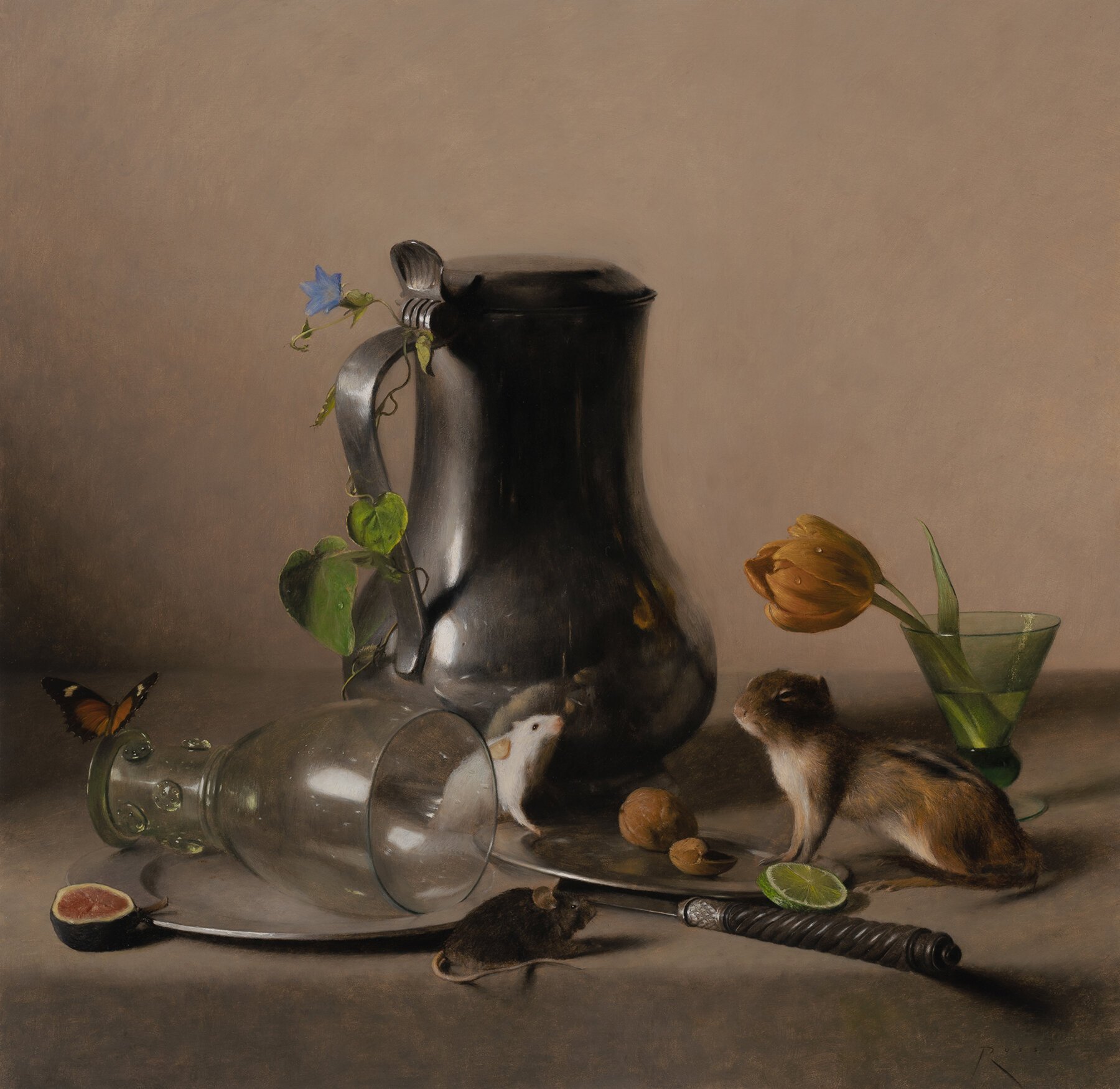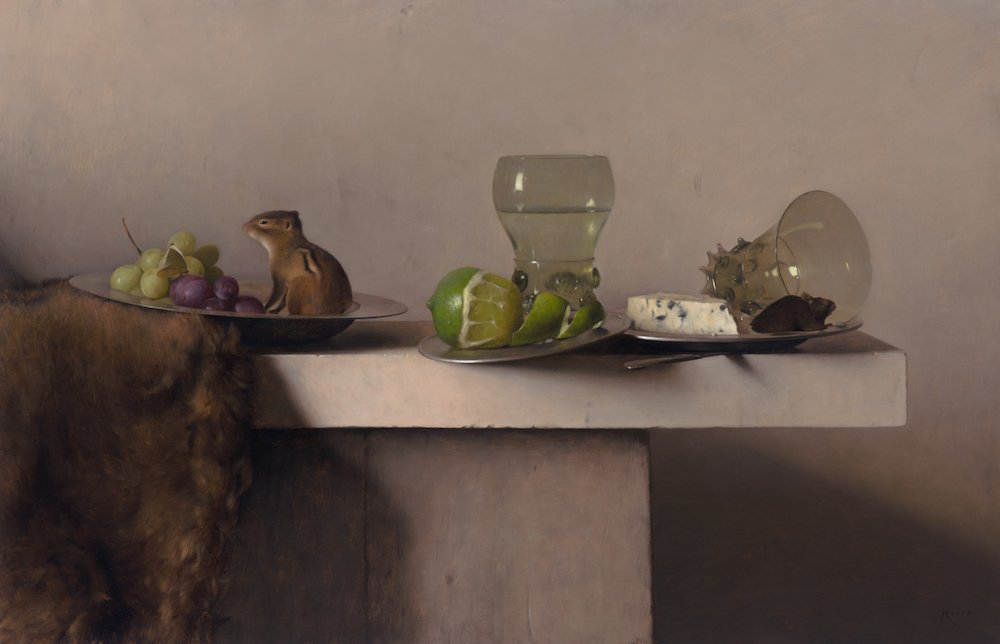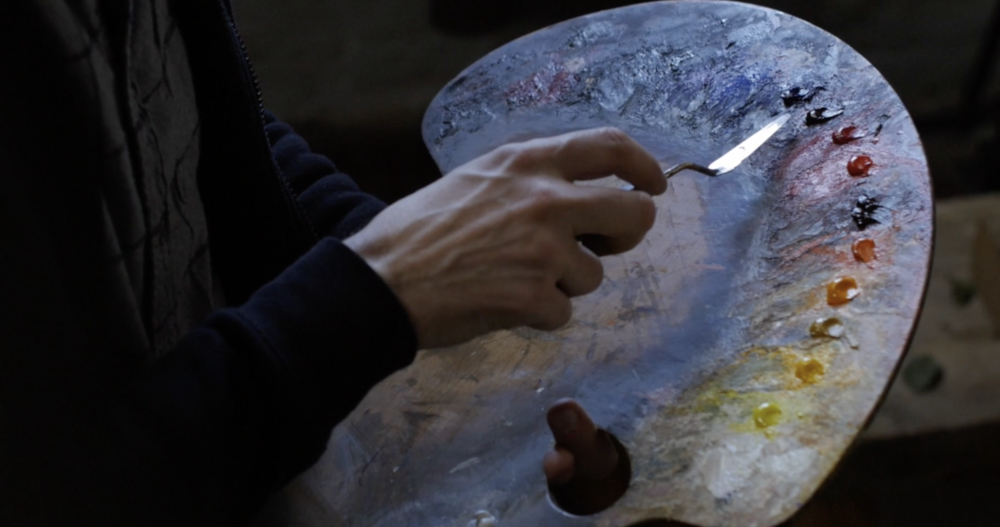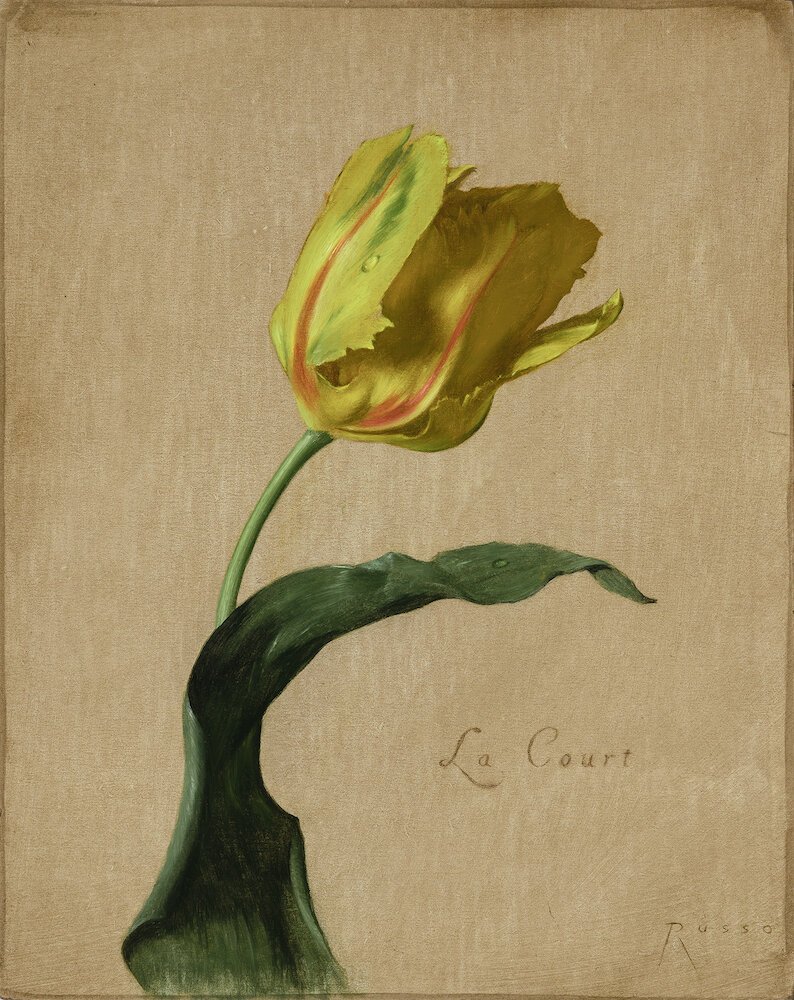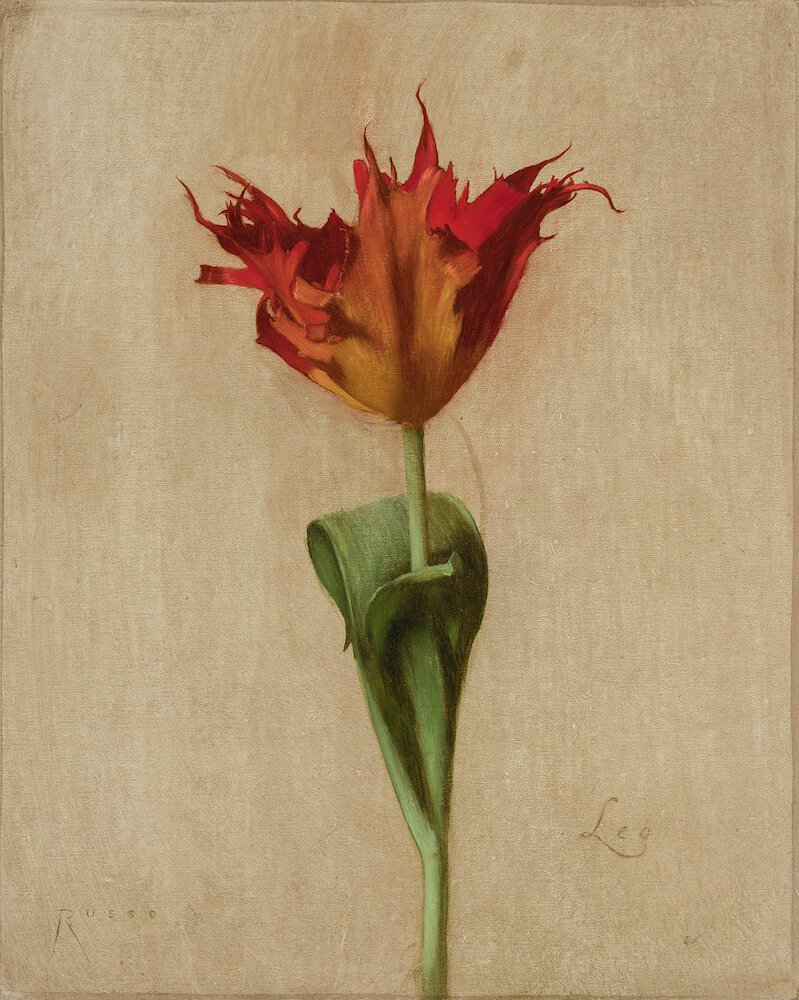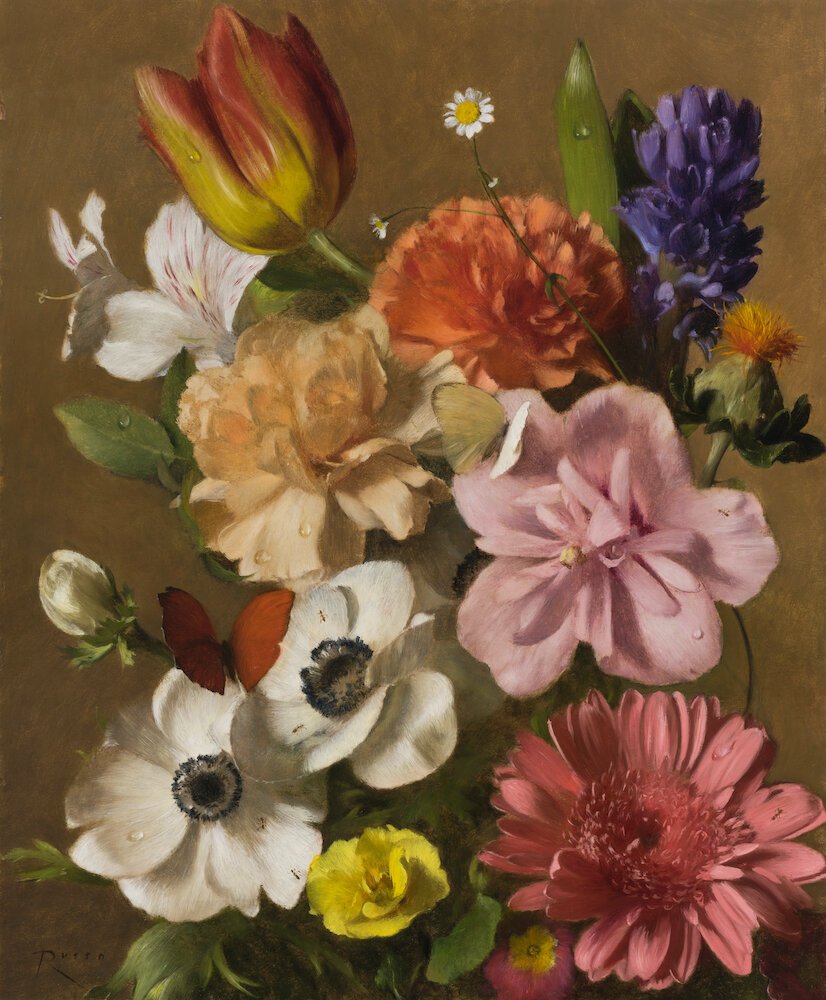Spotlight Interview with Carlo Russo, Still Life Painting Master and Fine Art Instructor from Pennsylvania
Photo credit: Bay Area Classical Artist Atelier
Today we sit down with Carlo Russo, a Philadelphia based oil painter and instructor.
Carlo graduated from the Pennsylvania Academy of the Fine Arts in 2004 where he focused his studies in the methods and practices of traditional realism. While known primarily for his mastery in still life painting, he is accomplished in figurative and landscape painting as well.
At Workshop SLC we are big fans of his work and we’re so honored to announce that he will be teaching his first workshop here in July!
Carlo, thank you so much for joining us today. We admire your work and are excited to get to know you better. Again, we thank you for your time!
What is one of your earliest memories of creating art? Was it a drawing or a painting? Do you still have it today?
I definitely remember making art at a young age, even as far back as kindergarten. But I have fond memories of my first grade art teacher, Mrs. Dunn. I remember copying a picture from a magazine in her class. It was an old car, like a Rolls Royce from the 30's. I remember copying it and thinking to myself that it really looked like the picture. And it made me happy that I could do this. I don't know what happened to that picture. Maybe one of my parents saved it, hopefully.
Who inspired you to become an artist? Did you have a family member or friend who inspired you? If so, who was it, and do you have a memorable piece they made?
I'm not sure it was any single person. I do remember seeing Frazetta at a young age and being fascinated by his illustrations. There was some innate desire to draw and paint at a very young age, and thankfully some of my earliest art teachers recognized that interest and helped nurture it.
Did you always know that you wanted to become an artist? Were there other paths you wanted to take? What ultimately made you choose art as a career?
I never really considered pursuing a career as an artist until I was a student at the Pennsylvania Academy of the Fine Arts (PAFA) in my early twenties . Before then, honestly, it never even crossed my mind that I could be a painter for a living. I thought I might want to do something in some field of the arts but felt kind of aimless in many ways. So in the late 90's I ended up going to school for fashion design. It was a 2 year program and while I did reasonably well as a student, it wasn't really what I was looking for. One thing I did discover though, was that I liked drawing much more than any other aspect of fashion design, which eventually led me to take a tour of PAFA. Once I walked into the cast hall and saw their plaster cast collection, including a life-size replica of David, I was all in. So a few weeks after graduating from the fashion design program, I was back in school, full time at PAFA. I'm not so sure I chose this career, rather it perhaps chose me. Things really just started falling in place my final year at PAFA. My senior year show at PAFA , I ended up selling 10 paintings and in addition, I made numerous contacts with clients who would purchase work from me directly from the studio over the next several years. I also got hooked up with a few galleries, including F.A.N. Gallery in Philadelphia, which gave me my first solo show the following year. I also landed my first teaching job at the Abington Art Center that summer after graduation. So it all happened kind of fast. I was selling work and making a few bucks and painting in my studio 5 or 6 days a week, and thought to myself, hey , I can do this!
What were some of the challenges you faced throughout your career and how did you overcome them?
Certainly in the early part of my career, making enough money was a challenge. My paintings were selling well enough but since I didn't have much of a reputation my prices were modest. So there were times when money was tight. I took side jobs to make extra money when I could. I did things like cleaning/janitorial work, sitting for a head sculpture class, house painting etc. I lived simple though and was pretty good with budgeting the money I had. I also learned to make picture frames since I couldn't afford to buy nicer frames for my own work. And over the years that skill became a real asset for me.
Where do you get inspiration?
Right now it's spring, so flowers are inspiring me. Especially tulips. I've got some amazing and rare tulips from Holland growing in my garden now. I've been looking at lots of Dutch still life and flower painting over the last four or five years. It's been very inspiring to rediscover these Dutch masters with a new eye and almost twenty years of experience in my back pocket.
How do you overcome creative blocks? What advice would you give our readers?
Good question. I don't run into that much. But when I'm not feeling inspired with a project or with my current ideas, I find it best to not force things. I'll take a walk, spend some time in nature, and maybe look through some of my art books. I just try to give myself some space. It's important to remind myself that I'm not a machine, who is constantly creating, going from project to project with no down time in between. That down time or in between time is part of the process and I've gotten better at embracing it. The important thing for me is to find a subject I REALLY want to paint. And when I feel that itch, I know I'm usually on the right track.
Many of our readers are looking to include more time for creativity in their everyday lives. What does your schedule look like? What advice would you give anyone who is looking for extra time to fit in more practice?
Right now I work in my studio five days a week and am also a dad to two young children. So my studio time revolves around the children to a large degree. They're in daycare Monday to Friday, so after I drop them off in the morning I'll work until 5 pm or so. Occasionally I get some time on the weekends to work but mostly I'm working on the weekdays. I'd say to anyone looking to get some extra practice in, find time where you can and practice. Even if it's just for an hour or two. I know it can be difficult to find that extra time with job or family commitments. Just do the best you can with your situation. When I was student at PAFA, I was enrolled full time but I also spent many nights and weekends drawing in the cast hall. So at a certain point I cut back on my social life and prioritized my extra time towards practice rather than hanging out with friends, or going out and grabbing a beer somewhere.
It can be hard to trust the process while painting. Were there any paintings that were challenging that you almost gave up on? If so, what kept you going?
Yes, I can relate to that and I think it's normal to feel that also. Painting is not the easiest thing to learn and feeling unsteady is something most artists probably feel while learning this craft. I gave up on lots of paintings as a student and throughout my career. Most of the time it's the result of pushing ahead without being really sold on an idea or composition. As I gain more experience over time, I abandon fewer paintings because I tend not to start a painting prematurely. I'm better about making sure my composition, set up or concept feels solid. But, no one's perfect and I still find myself occasionally scrapping a piece occasionally.
Our readers are eager to start painting but feel anxious about creating a good drawing on the canvas when getting started. What advice would you give?
If you're referring to the process of flower painting, we won't be doing any sort of drawing in pencil or charcoal ahead of time. All drawing is done with the brush , straight on the panel, one flower at a time. You still need to be accurate when painting your flowers though. When painting a flower piece, just let the composition unfold naturally. Work with the flowers you have and just do the best you can.
Your paintings are gorgeous and so realistic! When you drop into a flow state, do you find that you can smell the flowers while you paint them? Or feel the texture of their petals?
No, nothing that cool happens when I'm painting unfortunately. I do pay great attention to the texture and form of the various flowers and petals and try to render them in a way which conveys those textures, forms and changes of direction in a convincing way. When I'm in the zone I can paint fairly quickly while at the same time, recording those small details that really give it something extra.
Do you have a favorite subject to paint? Do you have a favorite color to work with or a least favorite color?
The last few years it's been flowers. Especially tulips and roses. I'm not sure I have a favorite or least favorite color, as any color can be beautiful in its own way.
You have certainly mastered your craft! Speaking of masters, are there any of the old masters that you admire?
I admire lots of old masters. Way too many to list. But I can throw out some names of deceased artists I really enjoy: Alma-Tadema, Caravaggio, Rachel Ruych, Jan Van Huysum, Gabiel Von Max, Claudio Bravo, Emelio Sanchez Perrier, Sargent, Jules Bastien- Lapage, Fantin-Latour, Pascal Dagnan- Bouveret, and the list goes on.
You have paintings in galleries all throughout the country. Which gallery was one of the most meaningful for you?
My first solo show was at F.A.N. Gallery in Philadelphia in 2006 was probably one of my most memorable for sentimental reasons. Not only was it my first solo, which was a pretty big thing for me, but I had a lot of my family come to the show too. My parents, grandparents, aunt, uncles, friends etc. Also, my father and my two brothers came and that was nice to have them there as well. My father had cancer, and at that point he only had maybe six or seven month left, but he managed to come to the opening. He was tired and had to sit in a chair most of the time but he was there and that was the important thing. I knew he was proud of me and it meant a lot to have him there.
What can we look forward to seeing from you in the future?
Plenty of flowers and still life. Beyond that, we'll see what the future holds!
Are there any artists you admire that you would like to share with our community? If so, who are they? Tell us what you love about them!
Michael Klein. He's an outstanding painter and was the first painter to really inspire me to paint flowers. And beyond that he's a kind and thoughtful person and I consider him to be a good friend and a true professional.
Carlo, thank you so much for your time today. We can’t wait for your upcoming workshop and for the many we hope to have in the future with you!


